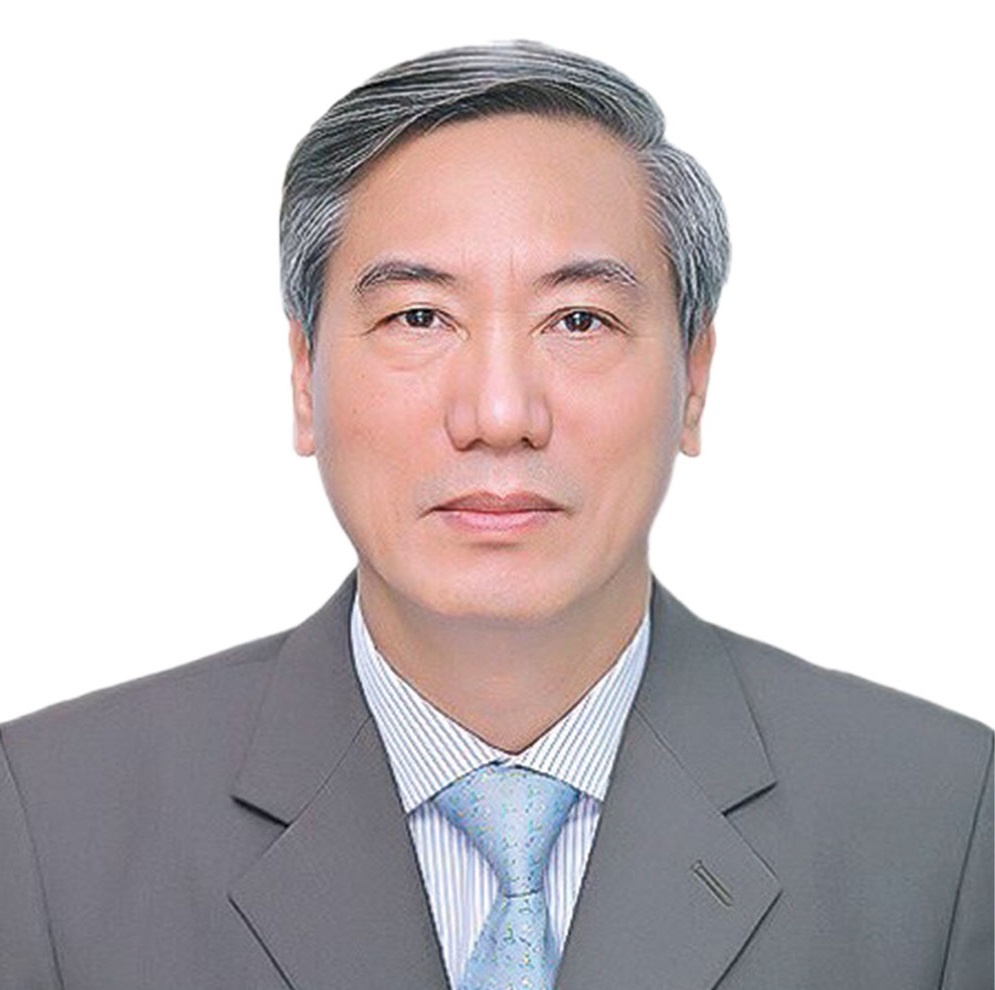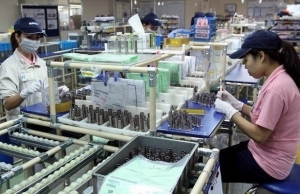INTERNATIONAL INVESTMENT
AND PORTAL
The first limitation is that the quality and effectiveness of attracting and using FDI are still limited. Notably, the number of projects with advanced and modern technology originating from European countries is still low, at around 5 per cent. Most initiatives use medium technology (80 per cent), 30-40 per cent of which comes from China.
 Ngo Cong Thanh, Former deputy director-general Department of Plan Management Ministry of Planning and Investment
Ngo Cong Thanh, Former deputy director-general Department of Plan Management Ministry of Planning and Investment
Vietnam’s foreign direct investment (FDI) has mainly been concentrated in a few sectors with a low level of technology in order to take advantage of low labour costs and certain incentives such as outsourcing, assembly, and some food processing industries. They often employ plenty of workers, primarily simple labour with low productivity and little training. Foreign-invested projects are also mostly of small scale.
Another limitation is the imbalance in attracting and using FDI by location, sector, and investor. It has been largely concentrated in regions with more favourable economic conditions, such as the southeast region and the Red River Delta. Investment capital is concentrated more in a number of large cities and provinces such as Ho Chi Minh City, Hanoi, Haiphong, Binh Duong, and Danang. This geographical imbalance has led to uneven development.
FDI has been made available in 19 of 21 sectors in the national economic system. In particular, the processing and manufacturing industry accounts for 59 per cent of the total inflows to the country. The agricultural sector, with more advantages regarding land, soil, forest, and water surface resources as well as labour force, is still lacking enough attraction to FDI, hence just accounting for only 1.5 per cent of the total number of projects and below 1 per cent of total capital.
In the past, the connections among the FDI sector and other sectors of the whole economy have not been tight and coherent enough, and the spillover effects on productivity and technology insignificant.
Foreign-invested enterprises tend to use more materials imported for production rather than raw materials and goods available from domestic enterprises. Meanwhile, domestic enterprises often undertake simpler stages, leading to a limited transfer of technology as well as a slow improvement of localisation rate, as in some industries such as automobiles, electronics, consumer electronics, and high technologies, among others.
Vietnam is still placed at a low level in the global value chain because it is primarily involved in the final assembly step of the production chain, without much value added. Further, negative aspects of using FDI have adversely affecting economic development, social order, and defence/security. Transfer pricing has been increasing in both number and complexity. In addition, a number of foreign-backed companies have violated environmental laws and illegally employ foreign workers.
Such shortcomings have been caused by various objective and subjective reasons, depending on specific conditions and contexts in each period. However, subjective causes are still the predominant factor.
FDI’s role in the economy, as well as the relationship between internal and external forces, have not been fully comprehended. As a result, a common awareness and determination to act uniformly throughout the political system have not been established. An organisational part in the political system at all levels and branches, along with some economic experts, have still been concerned about and lacked consensus on the necessary degree of openness.
At present, institutions and policies on FDI, with many limitations, have not kept up with development requirements. Notably, the system of laws and policies associated with investment and business has not yet ensured stability or consistency. Besides that, the capacity to manage and supervise investment is still limited.
Especially, the efficiency of state management of such funding has not lived up to expectations. Notably, several guiding documents were promulgated slowly, and not in accordance with the provisions of the law.
The management of ventures is still incompetent, omitting a number of projects which have not yet ensured the necessary economic, social, and environmental efficiency.
Last but not least, the implementation of an information and reporting system related to FDI has been insufficient. A national database system for investment from abroad has not been developed in a consistent, coherent manner. Local management agencies have also not been able to directly connect with foreign-invested groups to get accurate data of implemented capital of each enterprise, thus making project motoring inefficient.
To resolve the limitations, it is vital to complete institutions to attract FDI, and at the same time improve state management capacity in the supervision of foreign-led projects. In addition, it is necessary to accelerate the construction and completion of the national information system and database on foreign investment.
 Vietnamese firms invest nearly 22 billion USD abroad
Vietnamese firms invest nearly 22 billion USD abroad
There had been 1,643 Vietnamese-invested valid projects in foreign countries with a total capital of 21.93 billion USD as of late April, according to the Ministry of Planning and Investment’s Foreign Investment Agency.
 VIR to hold major foreign investment conference on May 15
VIR to hold major foreign investment conference on May 15
Vietnam Investment Review will hold a conference on May 15 to gather government officials, senior economists, international organisations, and the business community to discuss foreign investment inflows in Vietnam, and how to foster more in the new era.
 Flexibility desired for infrastructure
Flexibility desired for infrastructure
Governments from diverse corners of the world have harnessed the potential of foreign investment to propel their own infrastructure ambitions. Richard Abadie, partner and leader of Global Capital Projects & Infrastructure at PwC; and Jennifer Tay, partner and leader of Infrastructure at PwC Singapore, told VIR’s Le Luu about the nuances that characterise the investment landscape in Vietnam’s infrastructure domain.



















